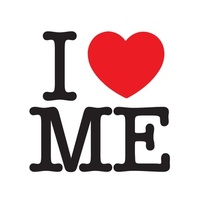
In my previous post I’ve shared Brene Brown’s “blaming” dvd. If you haven’t seen it yet it’s worth a moment to go to the video and have a look.
Blaming is all about ego. And NO, not just about men's egos – it’s all about our ego’s as human beings. Have a look at the picture below: sitting behind your desk, your feet on the desk and just feeling good about yourself, just like yourself as a person – that’s what ego implies: Ego is the manager of our personalities and it’s biggest need is to feel good about himself (or herself).
Now, how is an ego formed?
By telling yourself good things about yourself, like “I am good enough”; and thus giving yourself positive feedback of yourself, for example: “Iva likes me and she thinks I’m a good friend”; “I’m making a difference in someone's life”, etcetera.
By telling yourself bad things about yourself: “I’m not a good mom”; “I don’t have any university qualifications and therefore I am inferior compared to my friends”; “I’m fat and ugly”; “I don’t have self confidence”, etcetera.
By interpreting the feedback (positive or negative) that you receive from others: “Other people don’t like me”; “My boss thinks Mark does this job better than I did” or on a more positive side: “My boss thinks I’m great”; “I handled this situation well”.
Back to the blaming issue:
In order to feel good about yourself, you learn defending mechanisms (to boost your ego to feel good), for example blaming others instead of taking responsibility for your own actions, withdrawing from a situation where you feel inferior and accusing other people of not acknowledging and understanding you, drinking too much in order to have confidence to “speak out” in front of other people.
So, we all have ego’s, as we are human. But have you ever thought about what your defending mechanisms are? Start to recognize them, try to stop using them and become an anti- blamer, anti- over drinker, anti- withdrawing person and a pro “I am good enough the way I am” person.
Most people don’t even know that they have defending mechanisms. So, why is it good to know what your defending mechanisms are? Well, by knowing what they are, you can focus on minimising them, or using them less. Start saying: I don’t blame others, but I take responsibility for my actions; I don’t withdraw from friends, because I rather learn more self assertiveness and start to belief that I can’t expect others to respect me if I don’t respect myself; I don’t need to drink too much as I would rather learn some skills to better socialize and communicate with other people.
And start treating your EGO well, saying “hi EGO, you are a great buddy!!"


 RSS Feed
RSS Feed
